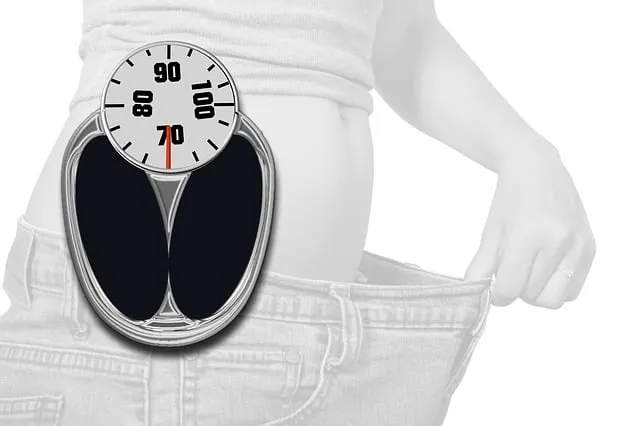
Beside macrophages, some studies reported a role of apoC1 in VSMC biology. These results suggest that at the local level, apoC1, like apoC3 (Table 1), could be involved in complications of the atherosclerotic process. Overall, these various effects of apoC1 on HDL metabolism (Fig. 3) suggest that the presence of apoC1 would lead to an increase in HDL-cholesterol levels, possibly by reduction of HDL catabolism. This could be confirmed in genetically engineered mice, with significantly lower HDL-C in apoC1 knock-out mice [9, 11] and increased HDL-C in mice overexpressing apoC1 [9, 10]. Once again, these effects should be confirmed in humans but clinical studies are lacking in this respect.
Foods high in trans fats include many commercial baked goods and fried foods. However, the key is to keep your muscles moving to achieve the metabolic benefits. As part of your weekly exercise, you can add in strength training sessions to help your metabolism and make yourself stronger. Interval training’like high-intensity interval training (HIIT)’is one way to give your metabolism a boost. This type of training can help you take in more oxygen and allow mitochondria, small organs with a cell that help give cells energy, to work harder for energy burn.
Healthcare providers sometimes recommend this strategy to help people manage obesity. While medical literature has shown snacking provides some benefits for certain people, like athletes, there is little evidence of a direct metabolic effect. Overall, diabetic states not only lead to elevated apoC1 levels, but also to the generation of structurally modified and dysfunctional apoC1. Metabolism includes all the chemical processes your body needs to break down food and fuel you when you’re active and when you’re resting. While some aspects of metabolism depend on your genes, you can influence others by changing how you eat and how active you are.
Low thyroid levels slow your metabolic function and raise the risk of complications, such as high cholesterol or coma. You may also avoid doing things that slow down your metabolism like restricting too many calories or not doing any strength resistance training. Sitting too much can have negative effects on your health, partly because long periods of sitting burn fewer calories and can lead to weight gain. ApoC1 inhibits also hepatic lipase [77] which mediates triglyceride hydrolysis of cholesterol-rich lipoproteins, including HDL. Conde-Knape et al. [8] confirmed the modulating effect of apoC1 on hepatic lipase in vitro but only when apoC1 was located on HDL, and not on the surface of VLDL. It was shown that apoC1 substantially diminished the uptake of HDL-bound cholesterol esters via SR-B1 [9].
You may think you’re cutting 500 calories from your diet, but actually be overestimating. And although wearable fitness trackers have gotten better at measuring calories burned, they’re still not perfect. Meanwhile, equipment like treadmills and ellipticals only provide an approximation, she explains. It’s important to manage your expectations’and avoid letting yourself get too caught up in the number you see on the scale. “The best way to lose two pounds per week is by cutting back your caloric intake by 500 calories and by exercising to reduce 500 calories per day,” he says.
For the most metabolism-boosting benefits, aim to drink that 16.9 ounces of H20 multiple times throughout the day. In simple terms, metabolism is the internal process by which your body expends energy and burns calories. Other commonly recommended metabolism-revving foods and drinks, including green, white, and oolong tea, hot peppers, and coffee aren’t metabolic miracle workers, but may increase metabolism up to 5 percent, according to research. If you enjoy them, it’s worthwhile to include them in your daily diet, de Mille says.
There are many health benefits to ensuring that you get enough sleep, which for adults should be seven to eight hours a night. Among them is that getting better sleep is linked with improved metabolism, but the growing consensus is that this effect is indirect. In a 2019 study, researchers also found that a lack of sleep for four nights or longer may slightly decrease how the body metabolizes fat. That said, this increase is small and easily restored by one good night’s sleep.
If you’re looking to shed some pounds or simply improve your overall health, increasing your metabolism is a great place to start. Your metabolism is the process by which your body converts food into energy. By boosting your metabolism, you can burn more calories throughout the day, even when you’re at rest.
Exercise Regularly
One of the most effective ways to increase your metabolism is through regular exercise. Cardiovascular exercises like running, cycling, or swimming can help boost your metabolism and burn calories. Strength training is also important, as it helps build muscle mass, which in turn increases your metabolic rate.
Stay Hydrated
Drinking plenty of water is essential for a healthy metabolism. Dehydration can slow down your metabolism, so be sure to drink at least 8 glasses of water per day. Additionally, drinking cold water can temporarily boost your metabolism, as your body has to work harder to warm up the water to body temperature.
Eat Protein-Rich Foods
Protein-rich foods like lean meats, fish, eggs, and legumes can also help increase your metabolism. Protein requires more energy to digest than fats or carbohydrates, so incorporating more protein into your diet can help boost your metabolic rate. Aim to include a source of protein in every meal for maximum benefits.
Get Plenty of Sleep
Getting an adequate amount of sleep is crucial for a healthy metabolism. Lack of sleep can disrupt your hormones and lead to weight gain. Aim for 7-9 hours of quality sleep per night to keep your metabolism running smoothly.
Don’t Skip Meals
Skipping meals can slow down your metabolism and lead to overeating later on. Instead, aim to eat small, balanced meals throughout the day to keep your metabolism revved up. Include a mix of protein, complex carbohydrates, and healthy fats to keep your energy levels stable.




